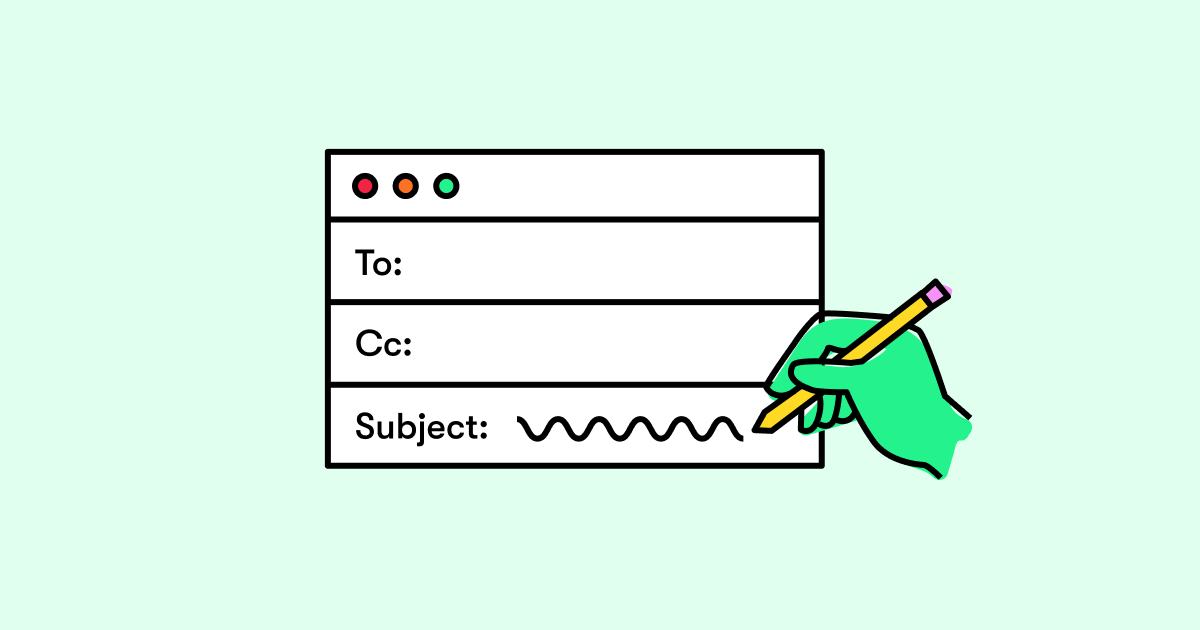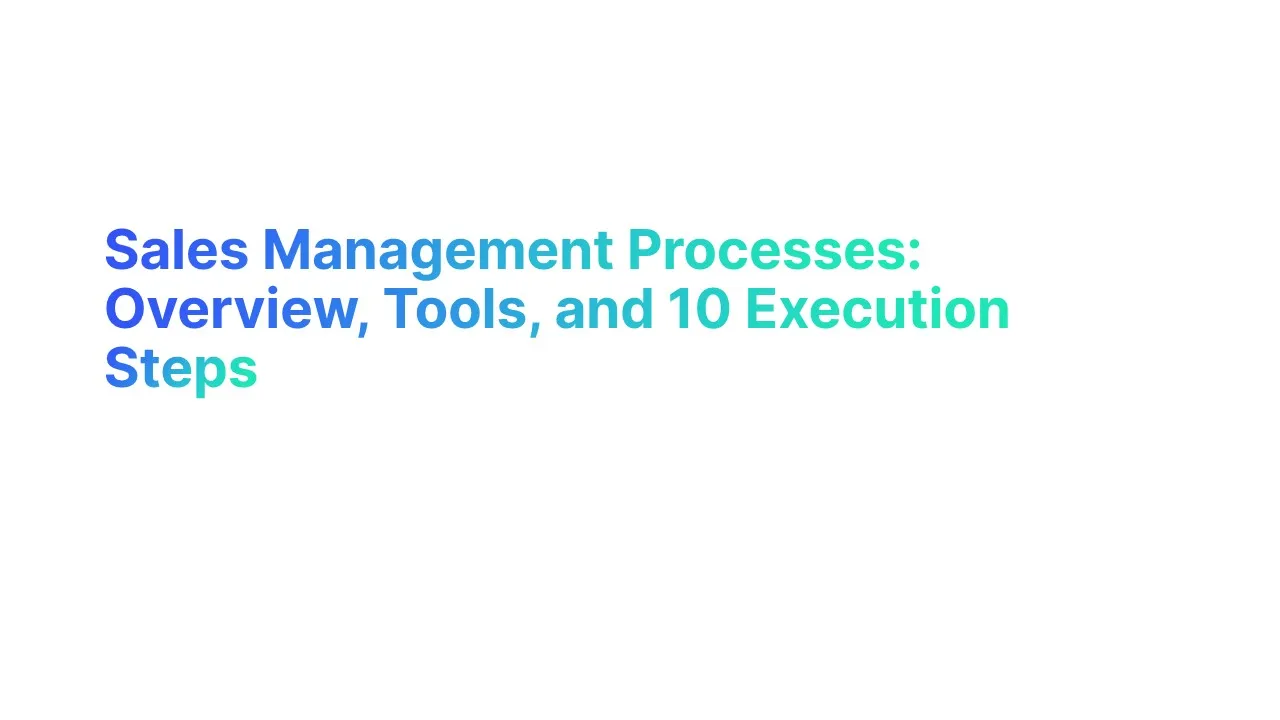A clear subject line can decide whether your apology is accepted or ignored. People judge intent in a single glance, and the right words can steady tension before the email is even opened.
Apology emails work when trust is repaired early, not when explanations fight for attention. A strong subject line signals honesty, control and respect.
This list offers proven lines that help you rebuild trust with clarity and confidence, starting from the very first word.
What it is an Apology Email and When You Should Send One?

An apology email works like an apology letter for situations where a mistake affects work, a customer, or communication involving your name. People send an apology email when a mistake risks clarity or trust and when a customer or team member needs reassurance.
Seeing when apology emails matter helps you understand the moments that call for a clearer response.
When an apology email is the right response
- A deadline slips and the delay affects planning for a client or internal team.
- Incorrect information is shared and the recipient needs the corrected details quickly.
- A customer reports dissatisfaction and expects a thoughtful acknowledgment.
- Tension appears in a written thread and tone correction is needed.
- A decision leads to confusion or extra work for another person.
When silence makes the situation worse
- The mistake affects money, timelines, or customer trust.
- Someone had to correct or compensate for the error.
- A complaint requires formal documentation.
- A higher-level review is possible and clarity protects both sides.
- The relationship benefits from a clear written acknowledgment.
Each moment calls for a slightly different tone, yet the goal stays the same, to show that you understand the impact and value the person’s time. Once this foundation becomes clear, shaping the steps of a professional apology email becomes far more deliberate and effective.
8 Key Steps for Writing a Professional Apology Email

To write an apology that feels sincere, you start by knowing how to write a structured note that owns the mistake without excuses. A professional message may include lines like please accept our or please accept my when responsibility is yours.
Using i take full responsibility and writing with care shapes a message that strengthens trust.
Each step shows how thoughtful structure improves your apology.
1. Identify the Exact Mistake
A clear apology begins with an accurate description of what went wrong. These first lines set the tone, so the mistake must be stated in simple and direct language.
- Name what happened in direct words, for example, “I am writing to correct an error in the report.”
- Avoid vague phrasing that hides your role in the issue.
- Show awareness of the impact so the reader sees you recognise the full shape of the mistake.
2. Craft a Clear Apology Email Subject Line
The reader sees the subject line before anything else, so clarity here shapes how they enter the message. A precise subject line shows intention and reduces confusion.
- Make sure the subject line is specific, for example, “Correction to the Q2 numbers.”
- Signal accountability so the reader knows the subject line is addressing the issue.
- Include details such as project name or company name when they help anchor context.
3. Open With Immediate Accountability
The opening line should communicate responsibility without delay. A direct acknowledgment shows respect for the reader’s time and attention.
- Start with clarity, for example, “I apologize for the delay in sharing the updated figures.”
- Avoid long openings that hide the apology.
- Own your part so the reader does not need to guess who caused the issue.
4. State the Context Without Excuses
Context helps the reader understand what happened, but it must stay clean and factual. The goal is to support clarity, not to defend your decision.
- Share only the details needed to understand the situation.
- Use simple markers such as “in the meeting yesterday” to ground the explanation.
- Keep the focus on clarity rather than justification.
5. Acknowledge the Impact on the Recipient
Strong apologies recognise how the other person was affected. This short moment of perspective builds trust and shows that your message is not self-focused.
- Describe the effect your decision or error created.
- Show awareness of their experience, for example, “I understand this may have affected your planning.”
- This step reinforces that the apology is directed toward their needs.
6. Present the Correction or Fix
A good apology moves past regret and into repair. Explaining the fix shows progress and prepares the reader for what happens next.
- Explain what you corrected or updated.
- Use action language such as “I have updated the file and would like to highlight the changes.”
- Avoid vague promises to make it up to someone and focus on concrete steps instead.
7. Offer a Clear Next Step
Clear next steps help restore momentum and keep work moving. One simple instruction is enough to show direction without overwhelming the reader.
- Suggest one action that helps move the work forward.
- If relevant, mention improvements for future work, for example, “in the future, I will send this a day earlier.”
- A clear next step turns apology into progress.
8. Close With Respect and Gratitude
The closing line sets the final tone of the message. A respectful close steadies the conversation and signals readiness to continue work smoothly.
- End with a grounded line such as “thank you for your understanding and your time.”
- Use closers that fit the relationship, such as “thank you for your guidance.”
- Keep the tone calm so the message finishes with clarity.
Understanding these steps makes your apology more precise and more useful for the person reading it, and this clarity becomes essential when you tailor the message for different people.
If you want to make your communication faster and more consistent, explore how Alore can help automate follow ups and track responses with precision.
Steps to Tailor an Apology Email To Different People for Better Impact
A sincere apology changes tone depending on who receives it, whether you write to your manager, a customer, or someone you work closely with. Subtle choices like it up to you or you can help soften the message when needed, while if you and we are guide tone adjustments.
Tailoring gives each person the acknowledgment they expect.
1. Apology email to a manager or senior leader
A manager usually needs clarity, ownership, and confidence that the issue is being handled. The tone stays formal and steady.
- Focus on the decision, the impact, and the correction.
- Keep emotion measured and avoid extra explanation.
- Show how you will prevent the same pattern in the future.
2. Apology email to a colleague or team member
Colleagues value fairness, shared workload, and trust in daily work. The tone can be warm but still professional.
- Acknowledge how your action affected their tasks or timing.
- Use direct lines that sound natural and grounded.
- Offer help on upcoming work only if it fits the situation.
3. Apology email to a customer or client
Customers focus on experience, reliability, and the sense that the company understands their inconvenience. The tone should be clear and reassuring.
- Recognise the effect of the issue without defensive language.
- Explain the fix and what they can expect next.
- Balance personal ownership with the larger company response.
Across these groups, short phrases like it up to you or you can help adjust control and tone so the message feels respectful rather than imposing. Used well, they show openness without shifting responsibility.
Understanding these distinctions helps you shape tone with precision, and the next step is learning why the subject line shapes this tone even before the email is opened.
Why the Subject Line in an Apology Email Matters More Than You Think?

The subject line carries more weight than many realize because it signals responsibility before the email is even opened. Phrases like sincere apologies for the or apology for the inconvenience caused show clarity while avoiding confusion.
What a good subject line signals
- You understand what went wrong and are willing to name it.
- You accept responsibility instead of hiding behind vague wording.
- You respect the reader’s time by showing exactly what the email contains.
- You are prepared to explain, correct, and prevent the issue from repeating.
Poor subject lines feel evasive, even when the email body is thoughtful. A vague subject forces the reader to dig for context and can make your apology feel half finished. Clear subject lines remove this friction and invite a calmer, more open response.
Remember, when you write an apology email, the subject line is the first test of your intent. It tells the reader whether you are serious about the mistake or simply trying to move past it quickly.
Once you see how much work the subject line quietly does, the next step is to match specific word choices to real situations so each scenario gets the clarity it deserves.
For teams that send high volumes of emails, Alore offers tools that test, refine, and schedule subject lines so your message always lands with clarity.
Clear and Impactful Apology Email Subject Lines for Every Scenario
Apology subject lines must change based on the issue involved, whether you write about delays, errors, or customer concerns. Keywords such as apologies for the error, sincerely apologize for the, to apologize for the delay, and non technical phrases like sorry for the inconvenience or for any inconvenience caused help shape tone.
These options guide you in finding a subject line that matches each scenario.
1. Missed Deadline
Use lines like apologize for the delay and to apologize for the delay when a deadline slips. These phrases show ownership and acknowledge the disruption clearly. They help the reader understand the intention behind the apology without feeling rushed or dismissed.
Subject lines
Usage note: Use these lines when timing affected planning or workload and the reader needs clarity without extra detail.
2. Sending Incorrect Information
When incorrect details are shared, phrases such as apologies for the error and for the error help keep communication honest and specific. These lines show accountability while reassuring the reader that accuracy will be corrected moving forward.
Subject lines
Usage note: Ideal when accuracy is the focus and the reader expects corrected information right away.
3. Delayed Responses or No Response
Words like sincerely apologize for the and sincerely apologize for express responsibility when silence or late replies affect progress. These subject line choices help rebuild confidence by recognizing the delay and clarifying your intention to respond properly.
Subject lines
Usage note: Use these lines when the gap in communication created uncertainty or slowed progress.
4. Miscommunication or Causing Confusion
Apologies for the oversight works well here because it points directly to the misunderstanding without adding unnecessary detail. This phrase acknowledges the confusion and communicates your effort to correct it promptly.
Subject lines
Usage note: Best when tone or unclear wording caused mixed signals and needs correction.
5. Customer Service Issues or Complaints
Customer concerns often require empathy through lines like sorry for the inconvenience, for any inconvenience caused, or for the inconvenience caused. These choices help create a calm tone and show readiness to resolve the customer’s issue respectfully.
Subject lines
Usage note: Use these when the customer’s experience, comfort, or trust needs reassurance.
6. Billing or Payment Errors
Using phrases such as to apologize for the makes your intent clear when addressing billing mistakes. It communicates a direct acknowledgment of error and signals your willingness to correct the problem.
Subject lines
Usage note: Choose these when money, charges, or account details were affected.
7. Workplace or Internal Team Mistakes
Using simple lines like sorry for the adds clarity without overwhelming the message. It recognizes what went wrong and helps maintain transparency with colleagues.
Subject lines
Usage note: Use when the mistake disrupts teamwork, planning, or shared tasks.
8. Technical Issues, Errors, or System Outages
Apology email templates support communication during unexpected technical failures by giving structured wording that explains the disruption. These templates keep the tone consistent and ensure the message feels accountable.
Subject lines
Usage note: Ideal when the audience needs reassurance that systems, tools, or access paths are stable again.
If your workflow involves repeated apology, update, or support emails, Alore helps you create templates, automate outreach, and keep communication structured across your team.
FAQs
1. How formal should an email apology be when the relationship is ongoing?
Keep it professional but warm. Use clear ownership, steady language, and a calm tone that matches the depth of the relationship. Formality should support clarity, not create distance.
2. What is the best way to express empathy in email without overexplaining the situation?
Acknowledge the other person’s experience in one grounded line, then shift to the fix. Empathy comes from understanding the impact, not adding extra details.
3. Can I use a gentle tone instead of direct wording if I apologize for a sensitive issue?
Yes, as long as clarity remains. Soften the tone with careful phrasing, but keep ownership firm so the message does not feel vague.
4. How do I acknowledge responsibility for the mistake without sounding defensive about the mistake?
State what happened, name your role, and move straight to the correction. Leaving out justification removes defensiveness and keeps the focus on progress.
5. When is it appropriate to use phrases like our apologies for the delay in a professional context when choosing a subject line for follow ups?
Use it when the delay affects workflow or expectations and the reader needs a clear signal that you recognise the lapse and are correcting it.
6. How to write an brief reassurance note that supports future communication without repeating the apology?
Offer one clear step you will take next, mention what the recipient can expect, and end with a steady line about continued support. Reassurance comes from action, not repetition.
Conclusion
A good apology works when every line is chosen with intention. The subject line sets the tone, and the message that follows carries the weight of your accountability. When clarity and respect guide your words, trust begins to settle again.
Use these lines as a foundation, then shape each apology to the person, the moment, and the impact. Steady language and thoughtful timing do more than repair a mistake, they help you move forward with confidence and clarity.
Want stronger email workflows? Alore blends automation with human clarity so your outreach feels personal, not robotic.

.jpg)



.png)



